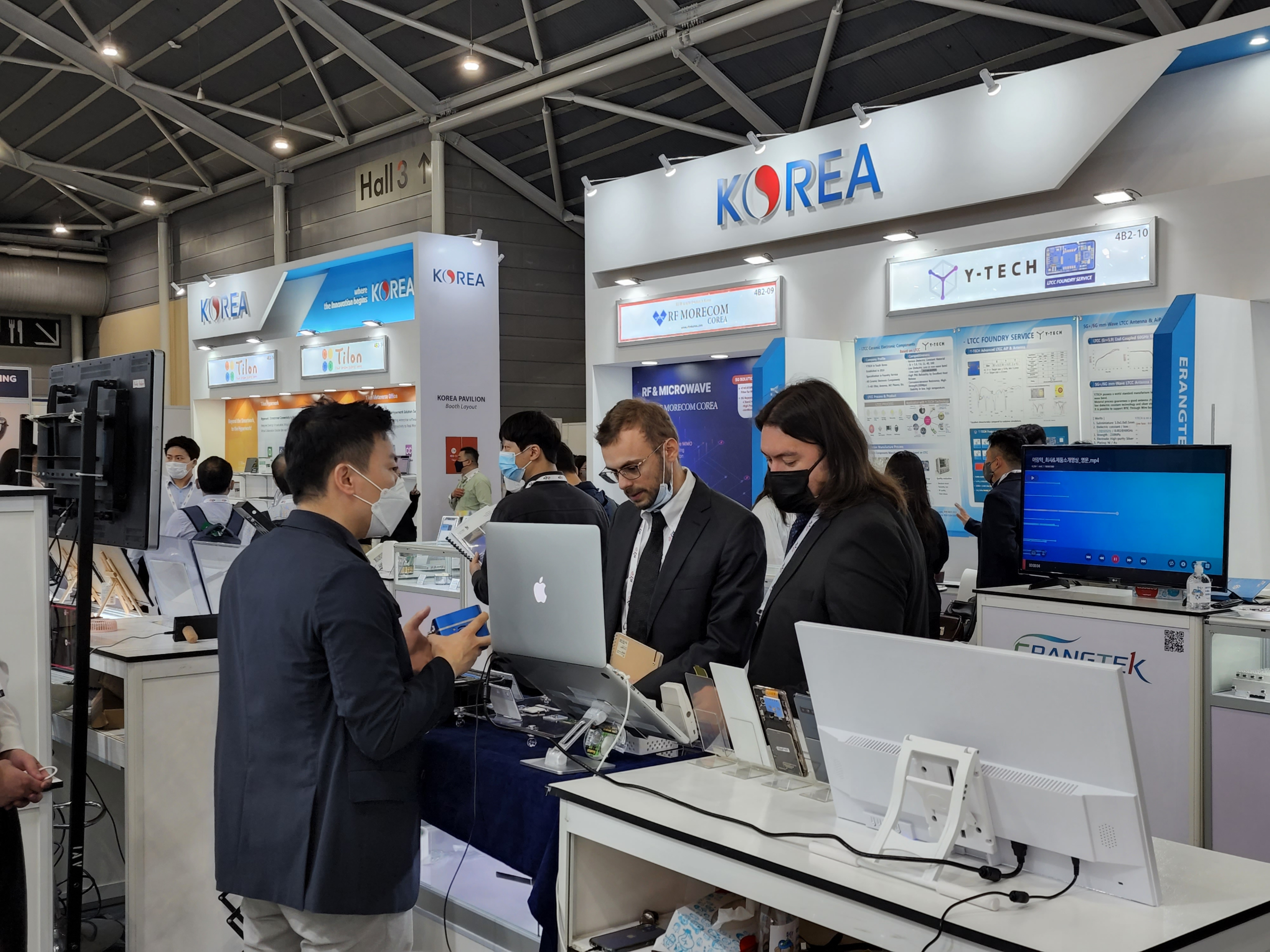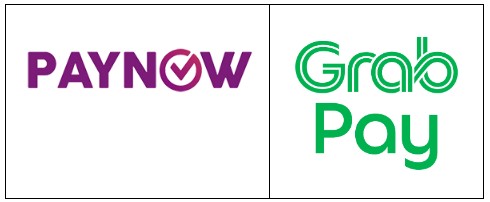– Southeast Asia’s major ICT industry exhibition, the largest gathering place for various global information and communication companies
– The Integrated Korea Pavilion, the largest national pavilion in the exhibition, held together with KOTRA, KICTA and BIPA
The Singapore information and communication exhibition (CommunicAsia), which was held in a non-face-to-face format for the past two years, has returned as an exhibition that can be visited on site. This exhibition, held from June 2st to 6rd this year, is one of the major ICT exhibitions in Asia and showcases communication service providers (CSPs), ICT market disruptors and technology service vendors from other continents as well as Asia. Participants in the ICT industry, such as , systems integrators, and cloud providers, participated. As part of the Asia Tech x Singapore (AT x SG) exhibition, the Singapore Information & Communications Exhibition was co-hosted with BroadcastAsia and Satellite Communications Exhibition (SatelliteAsia).
Exhibition Overview
The Singapore Information and Communications Exhibition was held in an entirely offline format for the first time in three years since 2019, recording a record number of 3 visitors and about 1 companies participating in the booth exhibition hall. This year's conference was prepared with the theme of various ICT trends such as 6G, artificial intelligence, and metabus, and the organizer operated an online exhibition platform to allow visitors who had difficulty visiting the site to network with booth participants and watch recorded conference videos even after the exhibition. made it You can easily check it through the online homepage (website: https://asiatechxsg.com/), and you can check webinars, presentation materials, and participating companies until August 200 this year.
<About 2022 Singapore Information and Communication Exhibition (CommunicAsia)>

[Source: Exhibition organizer data]
National Security Minister Singh stresses cooperation with 'Big Tech' rather than confrontation
With ICT becoming more and more essential and important to social functioning, Singapore's National Security Chief Teo Chee Hean said 'Big Tech' at 'Asia Tech x SG Summit', the opening event of this exhibition. He stressed the need to further strengthen cooperation with Chief Minister Teo, who attended the event remotely, said global technology leaders and government officials should seriously consider how to balance convenient seamless features with enhanced security and privacy, and how the expansion of the digital world will unify society. said.
“The speed and reach of information brought about by the Internet has enabled a handful of the most innovative and entrepreneurial information technology companies to have a tremendous impact on society as a whole,” he said. It forms the backbone of our infrastructure and serves as the interface for all interactions.”
Next, Chief Minister Teo argued that the future national development begins with cooperation, not against big tech, as an example of cooperation between countries and big tech. announced that they could cooperate on the agreement.
“This will improve interoperability with protocols, gateways and bridges between digital systems for cross-border digital trade and data flow,” predicted Teo, with Singapore working with five countries, including Australia and South Korea, and four associated An agreement was signed, he added.
Meanwhile, since the launch of the 'Smart Nation Initiative' in November 2014, Singapore aims to build a sustainable smart country. To build a digital society, we are striving to attract regional headquarters and data centers of global information and communication companies, and through this, we have been strengthening our position as an information communication and media hub.

[Source: Singapore Prime Minister's Office]
Overview of the Unified Korea Pavilion
This year, the Korean Pavilion was operated as an integrated Korean Pavilion by integrating the KOTRA (Korea Trade-Investment Promotion Agency), KICTA (Korea Information and Communication Technology Industry Association), and the Busan Information Industry Promotion Agency (BIPA). was held
A total of 50 companies from Korea participated in the exhibition, surpassing Singapore to become the largest participating country among the participating countries.
Participating companies in the Korea Pavilion conducted 200 consultations with more than 700 buyers through export consultations, and the consultation amount reached more than $1 million. In addition, after the event is over, online counseling follow-up support is being provided to support companies, and the integrated Korean pavilion is conducted to increase the visibility of the national brand as a Korean company and easily attract the attention of buyers.
<View of the Korean Pavilion>


[Source: KOTRA Singapore Trade Center]
Cases of participating companies in the Integrated Korean Pavilion: Korean company MORAI, presented at the autonomous driving simulation test exhibition
Morai, a simulation start-up that comprehensively verifies the stability and reliability of autonomous driving systems, participated in this exhibition as an integrated Korean pavilion company, and included 'Morai Sim Cloud', a cloud-based product of the autonomous driving simulator, 'Morai Sim', and 'Morai Sim Cloud', a real car driving simulator. Sim Drive was introduced.
Morai CEO and co-founder Jeong Ji-won said, “The cloud-based method improves test efficiency because users can run multiple simulation tests that require users to run multiple computers at the same time.” 'Sim Cloud' is a SaaS (Software as a Service) model of 'Morai Sim', an existing self-driving simulator, which allows you to build numerous simulation environments without hardware restrictions in the cloud without installing software on the local computer, and to perform tests at the same time. can,” he said.
Morai is attracting international attention by introducing a solution that shortens the autonomous driving test period by developing the only AI-based simulation platform in Korea. In particular, it succeeded in attracting a series B investment of 2 billion won in February last year, raising about 250 billion won in accumulated investment. Starting with the current US subsidiary, we plan to expand the scope of overseas market entry by establishing additional overseas subsidiaries in Germany and Japan.
In addition, Morai is planning to establish a Singapore corporation within this year to cooperate with the 'Virtual Singapore' project, a digital twin project promoted by the Singapore government. In 2018, Singapore completed 'Virtual Singapore', which replicated the entire city in a 3D virtual world, and the purpose is to utilize it to effectively use various urban planning elements such as transportation and environment and to establish rational city planning. The Singaporean government will cooperate with Morai to review various mobility introduction plans, and the specific scope of cooperation is under discussion.
Regarding this exhibition, CEO Jeong Ji-won said, “I am delighted to be participating in CommunicAsia, the best ICT event in Southeast Asia, and as a leading developer of full-stack autonomous driving simulation technology, Morai will strive to secure a safer way to validate autonomous driving systems. thing” was said.
<Virtual world built with Morai autonomous driving simulator>

Implications and Prospects
Even after the outbreak of COVID-19, Singapore has been continuously developing its IT infrastructure. Singapore aims to have two 2025G networks across Singapore by 2. It is scheduled to be built by a joint venture between Singtel, a local mobile carrier, and StarHub-M5, and Singtel launched a 1G pilot service for the second time following StarHub in September 2020. In addition, the Singapore government is operating the 'Smart Nation' project, aiming to build a sustainable smart nation. Singapore's overall information and communication infrastructure is at the highest level in the world, and it has been able to emerge as a global IT hub beyond Asia because the regional headquarters of global big tech companies and excellent IT personnel are located.
Meanwhile, the Singapore government has continued to support cooperation with foreign companies and investment attraction while adhering to the company diversity policy in the information and communication market. In addition, since none of the local mobile network operators produce hardware or equipment on their own, they have no choice but to rely on 5G equipment from foreign companies such as Ericsson, Nokia, and Huawei. In this situation, it is expected that Korean companies related to terminals and parts that can be used in the new technology field will advance into the future.
The Singapore Information & Communications Fair is the best opportunity to grasp the latest trends in the ICT industry and discover potential business partners. The next exhibition, the 32nd Singapore Information and Communications Fair, will be held from June 2023 (Wednesday) to June 6 (Friday), 7.



